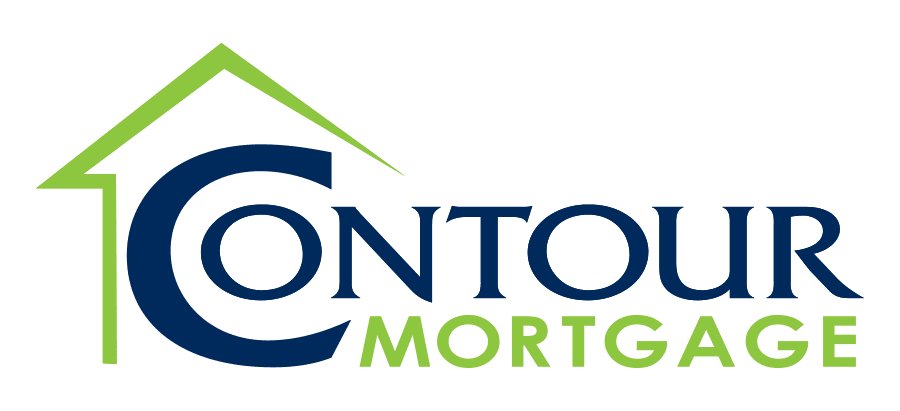The road to homeownership is fraught with unexpected twists and turns—some pleasant, and some, well, not-so-pleasant. The closing costs you incur at the end of the home-buying process definitely fall into the “not-so-pleasant” category.
Even after you’ve saved enough money to buy a home, gone out on house-hunting expeditions, and applied for a mortgage loan, closing costs seem to come out of nowhere to add one final expense to your home purchase. Then there’s the question of who actually pays this collection of closing costs. When you’re a first-time homebuyer, it’s completely understandable if you’re unsure about who pays what on the long list of expenses associated with closing the deal on a home purchase.
So, who pays these closing costs and perhaps more broadly, what are closing costs? Let’s explore these loaded questions, and more, together.
What Are Closing Costs?
ANSWER:
Closing costs are expenses related to obtaining a loan and closing the purchase. These expenses are separate from the sale price of the home.
Closing costs cover a variety of fees related to the processing of a mortgage. This final step in purchasing a home, closing costs include fees for the services and expenses that are required when you finalize a mortgage. Typically, closing costs are paid by the buyer, although there are a few instances when the seller takes on the responsibilities of paying those fees.
A variety of expenses above the expressed purchase price of the home, closing costs can include fees for an attorney, taxes, a title search, lender costs, and housing expenses like homeowners insurance. Fees like the state or local government-mandated recording or transfer taxes are nonnegotiable, while others like a lender’s fee, are negotiable.
While the average closing costs end up being 2 to 5 percent of the purchase price, the amount paid by the buyer varies depending on the size of the loan, as well as the rate of local taxes and fees. According to the data-gathering company ClosingCorp, the national average for closing costs for a single-family home is more than $5,700.
What’s Included In Closing Costs?
ANSWER:
Closing costs consist of multiple line items related to a mortgage loan, along with expenses mandated by the government.
Unfortunately, closing costs aren’t boiled down to one line item on a bill. These real estate-related costs actually cover a wide range of services rendered by your lender, along with required expenses mandated by state and federal laws, all required to finalize the mortgage loan. For the most part, the property transaction would never happen without the satisfaction of these payments.
Let’s take a look at the structure of real estate closing costs and define the most common categories. These are examples of what could constitute closing costs—be sure to inquire with your lender about your own personal rundown of closing costs.
Application Fee: A fee charged by the lender to process your mortgage application.
Attorney Fee: The charge levied by the real estate attorney to prepare and review home purchase agreements and contracts. Not all states require an attorney to handle a real estate transaction.
Closing Fee: This is also called an “escrow fee” and is paid to the party that handles the closing.
Courier Fee: This fee expedites the transportation of paper documents. Of course, a digital closing might negate this fee.
Credit Report Fee: Lenders will need to pull your credit reports from the three main reporting bureaus and this fee covers that expense. Lenders have been known to overlook this charge.
Escrow Deposit: You might have to deposit two months of property tax and mortgage insurance payments at closing.
FHA Mortgage Insurance Premium: FHA loans require an up-front mortgage insurance premium (UPMIP) of 1.75 percent of the base loan amount to be paid at closing. There’s also an annual MIP payment paid monthly that can range from 0.45 to 0.85 percent.
Flood Determination and Monitoring Fee: A certified flood inspector must determine if the property is in a flood zone, which would require flood insurance. This fee also includes ongoing observation to monitor changes in the property’s flood status.
Homeowners’ Association Transfer Fee: This is for buyers purchasing a condominium, townhouse, or planned-development property, which require that you join the community’s homeowners’ association. This fee covers the costs of transferring associated documents to the new owner.
Homeowner’s Insurance: A payment of the first year’s insurance premium. Usually required by the lender at closing.
Lender’s Title Insurance: A one-time fee paid upfront to the title company. It protects the lender if an ownership dispute or lien arises that didn’t present itself in the title search.
Lead-Based Paint Inspection: Paid to a certified inspector to determine if the property has any potentially dangerous lead-based paint.
Points: This refers to a payment to the lender that reduces the interest rate on your loan, lowering your monthly payment.
Owner’s Title Insurance: This offers you protection in the event someone challenges your ownership of the home.
Origination Fee: Typically 1 percent of the loan amount, this covers your lender’s administrative costs to process your fee.
Pest Inspection: Certain states, and some government-insured loans, require a professional pest inspection for termites and other pest-related damage.
Prepaid Daily Interest Charges: This covers any interest on your mortgage that will accrue from the date of closing until the date of your first mortgage payment.
Private Mortgage Insurance (PMI): Your lender might require this if your down payment is less than 20 percent.
Property Appraisal Fee: Payment for a professional appraisal company that assesses the home’s fair market value, which is used to determine your loan-to-value ratio.
Property Tax: You’ll have to pay any property taxes that are due within 60 days of the home purchase.
Rate Lock Fee: This fee, charged by the lender, guarantees a specific interest rate for a limited time—usually from when you get a preapproval, until closing.
Recording Fee: Usually charged by the city or county, this is a fee for the local recording office for the recording of public land records.
Survey Fee: A survey company must check property lines and shared fences to confirm boundaries.
Tax Monitoring and Tax Status Research Fees: This is in the category of “third-party fees” and keeps tabs on property tax payments and alerts the lender to any issues like late or failed payments.
Title Search Fee: This enables a title company to evaluate public property records for potential ownership inconsistencies. It involves searching deed records to ensure that there aren’t any ownership disputes or active liens on the property.
Transfer Tax: When you purchase a home, the title must be transferred from the seller to the buyer. This tax enables that transfer.
Underwriting Fee: This fee pays the lender for underwriting your loan, which is the research process that seeks to verify financial information like your income, employment, and credit record.
VA (Veterans Affairs) Funding Fee: This is for VA borrowers. It’s a fee that’s charged as a percentage of the loan amount that helps offset the program’s cost to taxpayers. The amount is dependent upon military service classification and the loan amount. Certain members of the military are exempt from this fee.
These closing costs vary by state, with some localities charging mortgage and transfer taxes that can increase costs in that state. One right that buyers should know, however, is that lenders are required to provide an estimate of your closing costs early in the loan process, as well as closer to the closing date—this way you know the amount you’re expected to bring to closing.
Who Pays Closing Costs, When Are They Due?
ANSWER:
The buyer pays the lionshare of closing costs and these payments are due at the closing of the real estate transaction.
Buyers and sellers have been known to do plenty of negotiating during a property transaction and the side expected to pay closing costs isn’t set in stone. That said, the common practice is that buyers are the ones that are responsible for paying the majority of closing costs on a real estate deal. Sellers do have their own closing costs to worry about, namely the real estate agents’ commissions at the closing, but buyers are mainly the side of the table that must pony up the dough to finalize the transaction.
The common practice is that buyers are the ones that are responsible for paying the majority of closing costs on a real estate deal.
Of course, as previously mentioned, negotiations are known to occur during real estate transactions. A situation could arise where the seller wants to expedite the sale of the home and offers to pay the closing costs—or a portion of the closing costs—in order to sweeten the deal. The seller also has the option of using the closing costs as a bargaining chip. For example, the seller could tell the buyer that they will pay part or all of the closing costs if the buyer is willing to overlook a certain flaw in the house.
As for when the closing costs are typically due, the general rule of thumb is to pay these expenses when you sign your final loan documents. Most likely, you’ll wire the funds to escrow that day or sign and hand over a cashier’s check. Personal checks, for the most part, will not be accepted by your lender.
Are There Ways To Reduce Closing Costs?
ANSWER:
There are resources available to homebuyers who wish to attempt to lower these final expenses.
Purchasing a property is one of the biggest expenses you will ever face, as such, savvy homebuyers should look for ways to reduce costs whenever possible. And it’s not just about penny pinching or or avoiding mandatory fees. Saving money on closing costs could help you afford that new refrigerator or plant some seed money to eventually redo the basement or add a second-floor addition above the garage.
Personal finance website NerdWallet.com recently published helpful strategies in an effort to assist homebuyers in the search for savings. Their strategies include comparison shopping for lenders and other closing cost line items, negotiate lender fees, shop for title and settlement services, asking the seller to contribute, and asking your bank about discounts and rebates. Read the full article here.
















